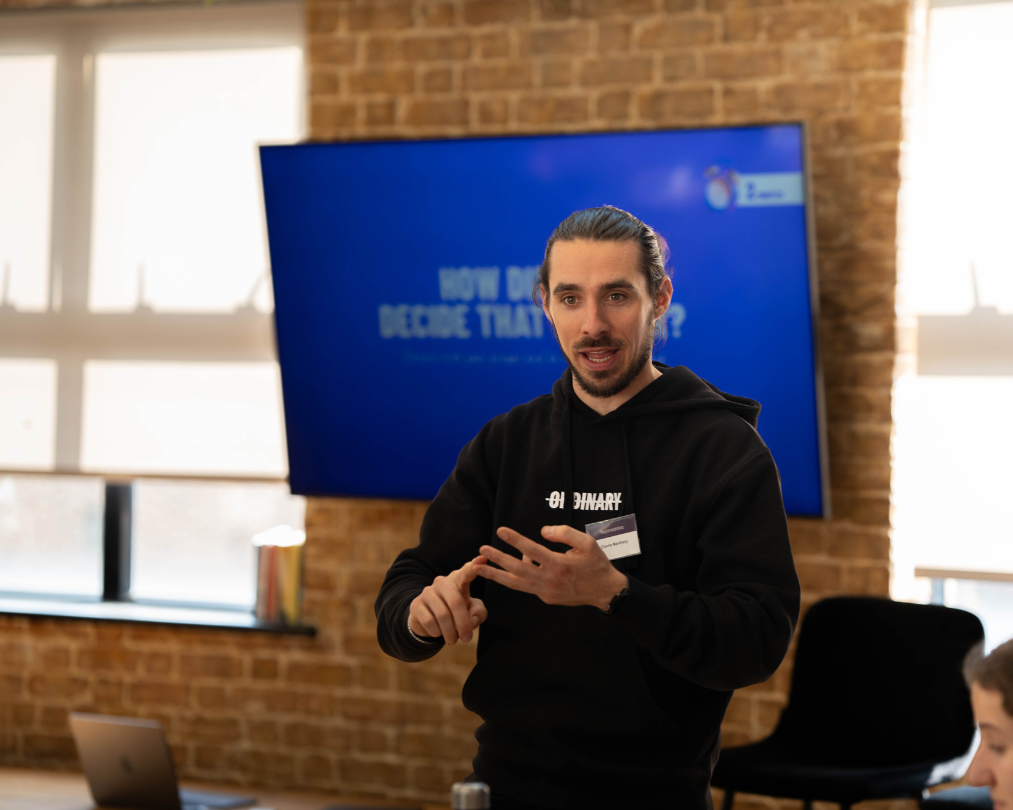What’s covered in this blog:
In this blog, we look at why many graduates and apprentices aren’t considered career-ready, exploring the soft skills gap, the impact on productivity and retention, and how Gen Z’s expectations are reshaping the workplace. It shares practical steps for developing early talent through better learning, development, and culture-building initiatives.
The shifting world of work
The idea of spending 30 years climbing the ranks at one company isn’t seen as the norm anymore. Graduates and apprentices joining the workforce now need to be adaptable, curious, and good with people.
But here's the problem: according to the Institute of Student Employers (ISE) Development Survey, employers rate only 49% of graduates and 24% of apprentices as "career-ready." Are universities failing, or are employers asking for the impossible?
The soft skills gap
Universities still produce academically strong students. But many can't translate what they learned into actual workplace competence. Even Google, Microsoft, and Apple have ditched strict degree requirements in favour of looking at what people can actually do.
The skills that actually matter:
Self-awareness and resilience – Can you bounce back from setbacks? Do you know where you're strong and where you need help? Can you handle stressful situations?
Communication and collaboration – You need to write clear emails, give decent presentations, and work well with your team.
Critical thinking and problem-solving – Can you think on your feet, come up with solutions, and question assumptions instead of accepting everything at face value?
Historically, these "soft skills" have not often been explicitly taught in traditional education environments, but expect that to change, especially for universities, as they seek to protect their place in the ecosystem of work.
The impact of the skills gap on productivity and retention
When new hires lack these foundations, the problems are immediate:
Lower productivity – New starters take longer to get up to speed with their role, which piles pressure on their managers and teams.
Disengagement and turnover – People who feel out of their depth get frustrated and that can impact retention rates and culture within a graduate programme.
Communication breakdowns – Poor collaboration creates silos, which can lead to work slowing down.
Left unchecked, these issues can impact team morale, slow down progress, and make it harder to retain great people.
Understanding Gen Z at work
Gen Z grew up through economic instability, social chaos, and constant digital noise. They learned to adapt fast, but they're also burned out young.
This generation cares about purpose and work-life balance more than "hustle culture." They want meaningful work and honest employers. Their digital fluency is a strength, but it comes with trade-offs: shorter attention spans and less experience with in-person communication.

How employers can develop career-ready talent
Here are some practical steps both parties can take to bridge the skills gap and ensure a smooth transition from study into work.
For employers:
Invest early – The ISE survey also revealed a 17% increase in L&D spend per hire vs 2023. This highlights a growing recognition of the importance of early talent development, focused on the most in-demand skills.
Go beyond onboarding – Onboarding shouldn't stop after week one. Set up proper mentoring, regular coaching, and clear progression paths. Support people from day one through to becoming alumni.
Foster a culture of learning – Encourage a growth mindset within your company. Create an environment where asking questions and making mistakes are seen as learning opportunities.
For early talent:
Build self-awareness – Take personality assessments, explore career resources and have vulnerable conversations with those you trust to understand your strengths, weaknesses, and interests.
Be proactive – Don't wait for opportunities to come your way. Seek out mentors within your company, volunteer for projects, and take initiative. You never know where these paths will take you, or what you’ll learn along the way, and you’ll no doubt be enhancing your communication, collaboration and problem-solving skills.
Keep learning – Recognise that staying in the same career for your entire life is an ageing concept. Seek to broaden and diversify your knowledge and skills, especially when it comes to emerging technology, to position yourself at the front for the best jobs of tomorrow.
Closing the gap together
At Wiser, we built The Wiser Way around this principle. It's a development programme that helps young people build self-awareness, communication skills, and resilience from the start. When people feel supported, they don't just stay longer, they perform better.
We can create workplaces that unlock potential, boost performance, and redefine what "career-ready" actually means.




